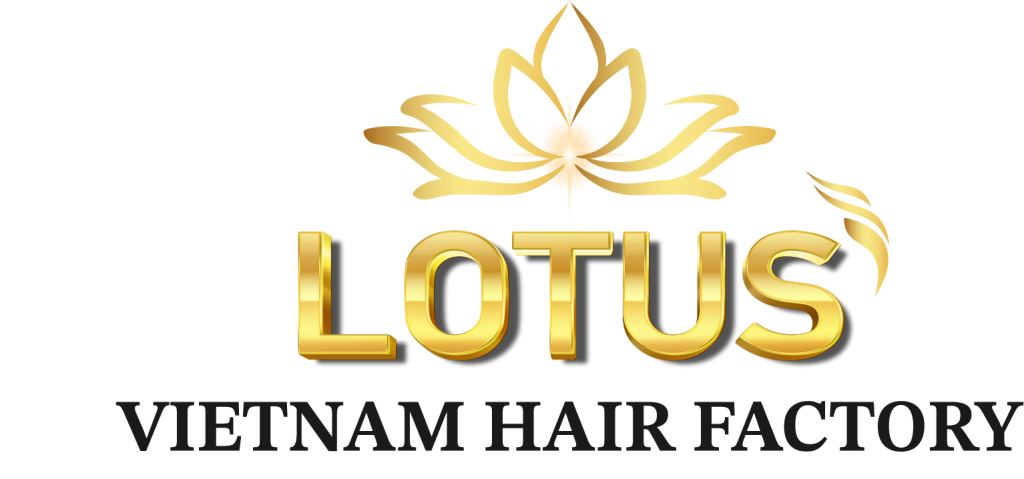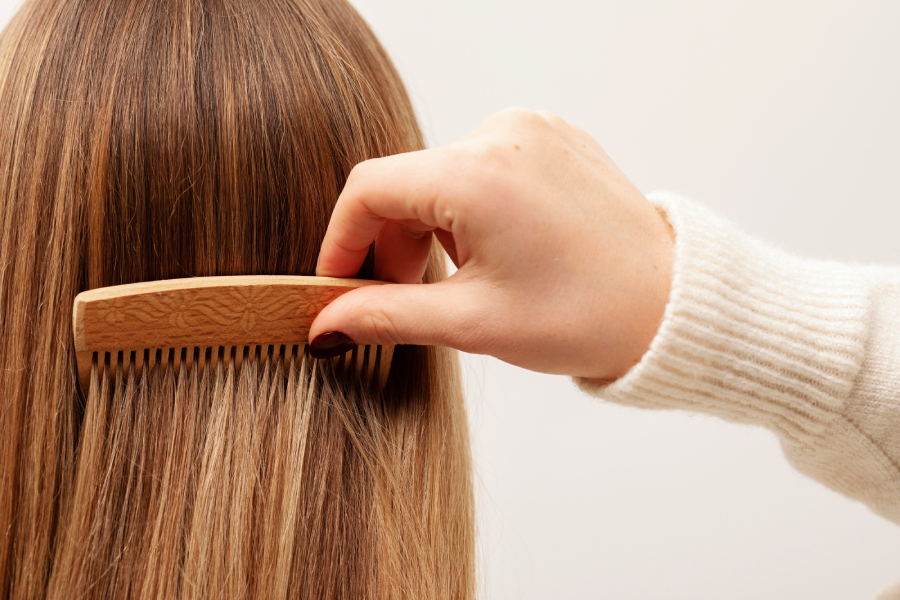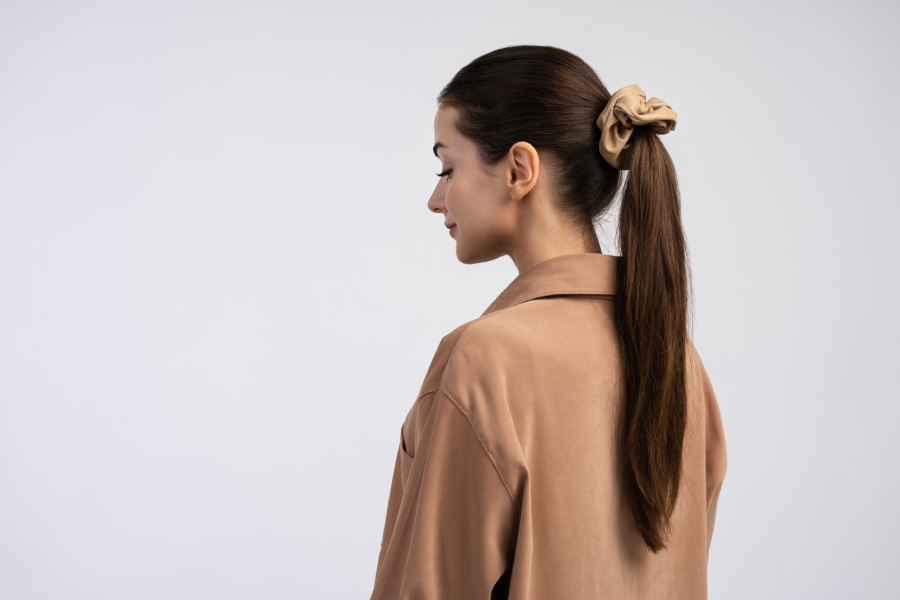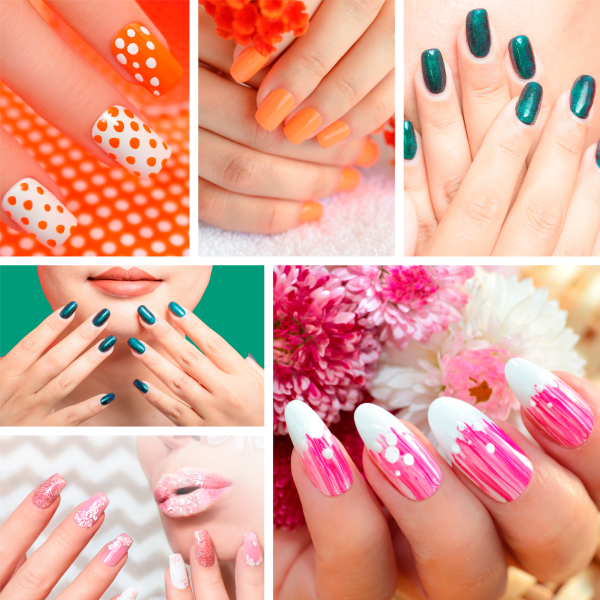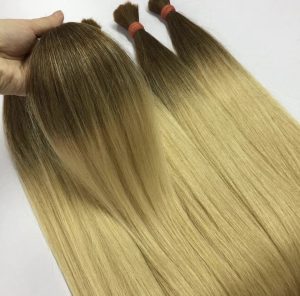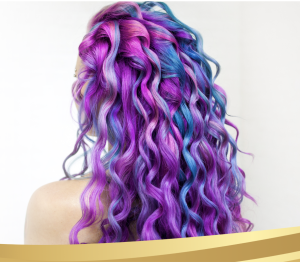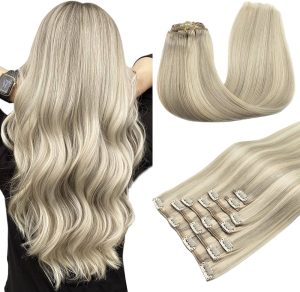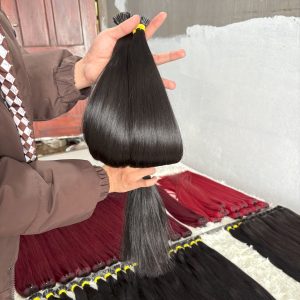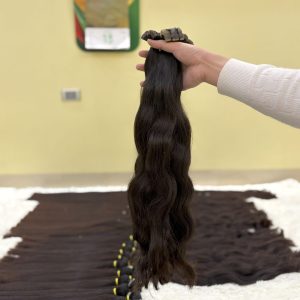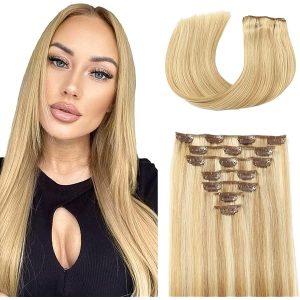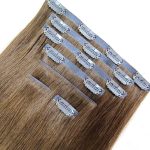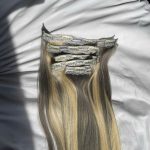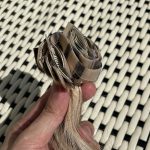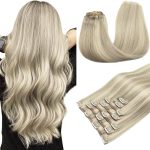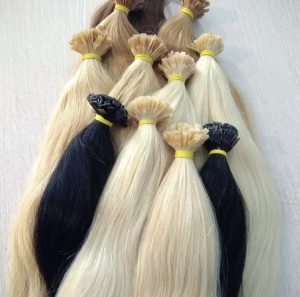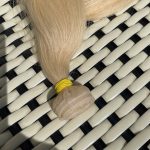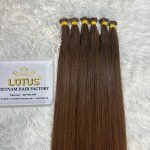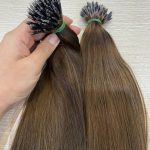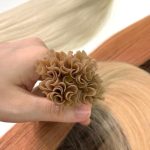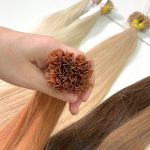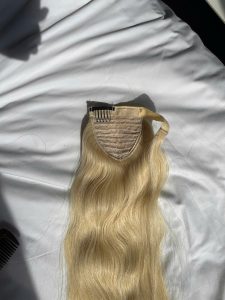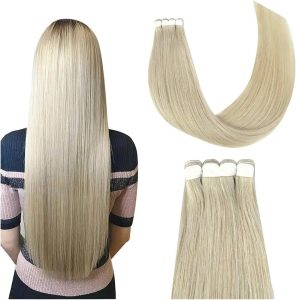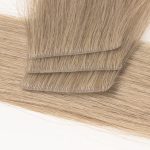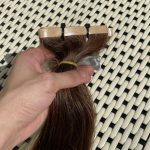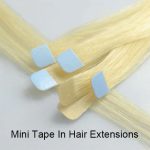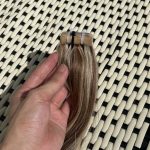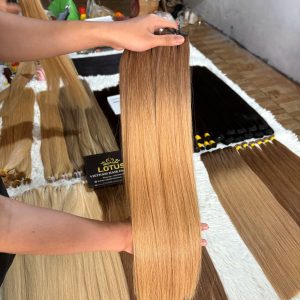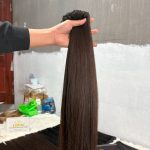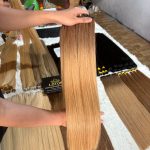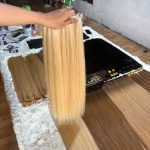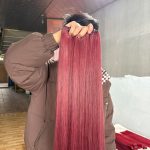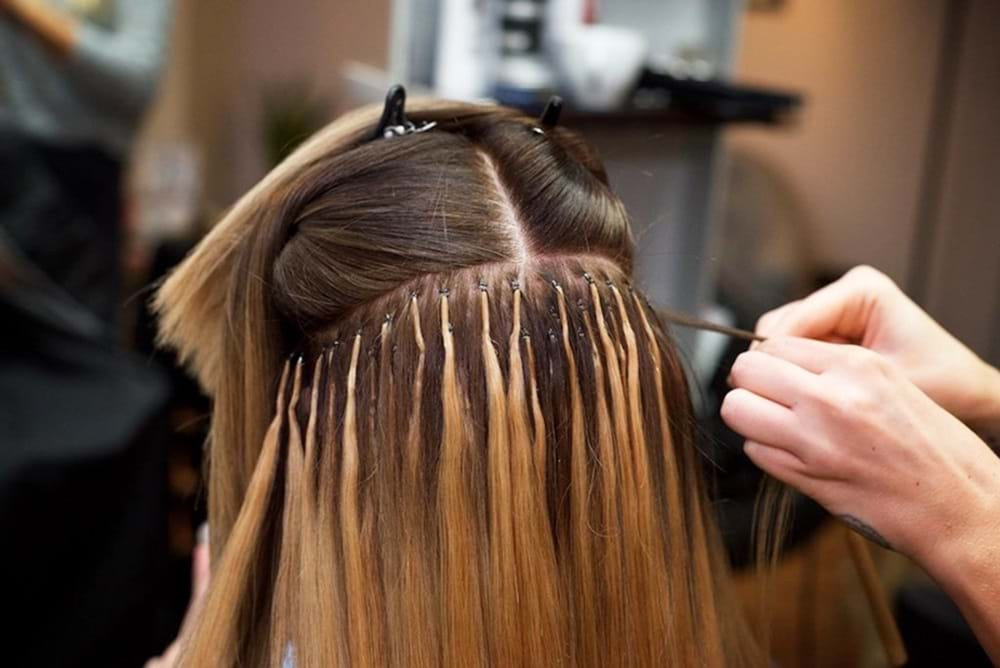Itchy Hair Extensions: Causes and Solutions
You’ve just gotten hair extensions and are excited to enjoy your long, voluminous dream hair—yet instead, you’re constantly dealing with an itchy scalp, sometimes so uncomfortable that it disrupts your sleep?
This is a common issue many people face, especially when getting extensions for the first time or using a method that’s not quite right for them.
So why do hair extensions cause itching? How can you soothe an itchy scalp caused by extensions?
Let’s explore the specific causes and effective solutions so you can confidently enjoy your beautiful extensions without the discomfort.
Why does your scalp itch after getting hair extensions?
First, to understand why extensions might cause itching, it’s essential to know what type of extension technique you’re using—since each method comes with its own characteristics and potential risks.
1. Hand-Tied Weft Extensions
The weft technique, especially hand-tied wefts, is generally considered one of the safest and most lightweight options. However, if not applied properly, it can still cause itching and discomfort.
Common causes of itching with hand-tied wefts:
-
The wefts are attached too close to the scalp, leading to irritation.
-
Too much hair is added at once, creating excessive weight and tension on your natural roots.
-
The weft size is too large compared to your head circumference, causing a tight, uncomfortable feeling.
-
Low-quality synthetic hair—especially artificial fibers—may trigger scalp irritation or mild allergic reactions.
2. Tape-In Extensions
Tape-in extensions are widely used but often considered the least comfortable, especially for people with sensitive scalps.
Common causes of itching with tape-ins:
-
You may have an allergic reaction to the adhesive used in the tape.
-
The tape tabs are placed too close to the scalp, creating tension, burning sensations, and itchiness.
-
The amount of added hair is not suitable, leading to heaviness and scalp irritation.
💡 If you frequently experience itchiness with tape-ins, consider switching to gentler techniques like hand-tied wefts or K-tips (keratin bonds).
3. K-Tip Extensions (I-Tip / Keratin Bond)
Keratin bond extensions are praised for their durability and natural look. However, if you’re experiencing itchiness, check for the following issues:
-
Low-quality keratin glue may cause scalp irritation.
-
Uneven bond application can leave sharp edges that scratch and irritate the scalp.
-
Bonds placed too close to the scalp can cause prolonged tension and itchiness.
4. Micro Ring / Micro Bead Extensions
This method uses small metal beads to attach the extensions to your natural hair—no heat or chemicals involved. However, it can still lead to itching if:
-
The beads are placed too close to the scalp, causing a tight, suffocating sensation.
-
The beads are clamped too tightly, pulling on your hair roots continuously, resulting in itchiness and headaches.
-
You can feel the beads while lying down, making it hard to sleep and intensifying the itchy feeling.
-
Some individuals may be allergic to the metal used in the beads.
How to reduce scalp itching from hair extensions
Feeling an itchy scalp about two weeks after getting hair extensions and unsure why? Don’t worry — itchiness isn’t always caused by poor techniques or unskilled stylists. In fact, there are many different factors that can trigger this discomfort, from the quality of the hair extensions to your daily hair care habits.
If you want long, voluminous hair while keeping your scalp comfortable and itch-free, check out these tips to soothe irritation and fully enjoy the beauty of your hair extensions.
1. Choose an experienced hair extension technician
Selecting the right stylist is key to ensuring both aesthetics and scalp health. Choose a technician who:
-
Has in-depth experience with your chosen hair extension method
-
Provides a clear portfolio and has positive client reviews
-
Offers detailed consultations and aftercare instructions
A skilled technician knows how to distribute the weight of the extensions evenly, preventing tension on the scalp and reducing itchiness or discomfort.
2. Avoid scratching or digging at an itchy scalp
It’s natural to want to scratch when your scalp itches, but doing so can:
-
Damage the scalp
-
Displace or loosen the extensions
-
Create an environment for bacterial growth, leading to inflammation
If the itch is intense, check if the extensions are attached too close to the scalp. If so, remove them, clean the scalp thoroughly, and reapply with better spacing.
3. Don’t keep extensions in too long without maintenance
One common cause of itching is wearing extensions beyond the recommended period. This can lead to:
-
Tangling at the roots
-
Product, oil, and dirt buildup around the bonds
Stick to regular maintenance appointments to clean, remove old extensions, and reapply if needed.
4. Follow a proper hair and scalp care routine
Improper care can contribute to scalp irritation:
-
Washing too infrequently leads to sebum, sweat, and product buildup — a breeding ground for bacteria
-
Over-washing with strong products can strip natural oils, drying out the scalp and causing itchiness
Solution:
-
Use gentle, sulfate-free, fragrance-free hair care products
-
Wash your hair according to your scalp type and stylist’s advice
-
Use a scalp-soothing mask with tea tree oil, aloe vera, or panthenol to calm irritation
5. Choose the right shampoo and conditioner
Using harsh shampoo or not rinsing thoroughly can worsen scalp issues. Remember to:
-
Rinse all shampoo, conditioner, and treatment products thoroughly
-
Opt for shampoos designed for extensions — they clean gently while protecting bonds and reducing irritation
-
Consult your stylist to find a shampoo that suits your hair and extension type
6. Treat dandruff before getting extensions
If you have dandruff, treat it completely before getting extensions. Adding extensions to an already flaky scalp can:
-
Worsen dandruff
-
Make scalp care more difficult
-
Reduce bond strength and extension longevity
7. Use the right brush and brushing technique
The wrong brush can:
-
Damage the extension bonds
-
Irritate the scalp
-
Worsen the itchy feeling
Use a brush made for hair extensions — soft bristles without sharp or metal tips. Start brushing from the ends and work your way up gently to avoid pulling.
8. Be cautious with topical scalp treatments
If you have red bumps, scratches, or mild inflammation on your scalp, anti-inflammatory creams may be necessary. However:
-
Avoid oil-based products as they can weaken keratin bonds and cause shedding
-
Consult a dermatologist for a gel or water-based treatment that’s safe for use with extensions and still effective
Choosing non-irritating hair extensions
To ensure comfort while wearing extensions, two factors are essential: choosing the right hair quality and the proper extension method.
1. Choose the right hair type
-
For thin, soft, untreated hair: Virgin Slavic hair is ideal — lightweight and itch-free
-
For slightly thicker hair: Dyed Russian hair offers various tones and textures
-
For maximum volume: European hair provides the fullest look
All our hair types are carefully processed and safe for scalp health. In contrast, cheap hair from some Asian markets is often treated with harsh chemicals, which can cause irritation and itchiness — not recommended.
2. Choose the right extension technique
Hand-tied wefts and fusion (keratin bond) methods are known to be the least damaging and most comfortable.
Among them, keratin tip extensions are particularly suitable for minimizing itchiness. Since the bonds don’t directly touch the scalp and are smooth and round, they don’t poke or irritate. When applied correctly, this method is safe and very comfortable for long-term wear.
Conclusion
To reduce scalp itching from extensions, focus on high-quality hair, the appropriate application technique, and proper care. This combination will ensure a healthy scalp and a more enjoyable, long-lasting hair extension experience.
Lotus Hair Vietnam – A Leading Manufacturer of High-Quality Hair Extensions
With over 14 years of experience, Lotus Hair Vietnam takes pride in being one of Vietnam’s leading hair extension manufacturers, specializing in providing premium Vietnamese hair to international markets. Established in 2010, we have continuously developed and strengthened our reputation worldwide, particularly in the United States and Europe.

Quality is always our top priority at Lotus Hair. We are committed to delivering consistently high-quality hair products with smooth texture, natural shine, and long-lasting durability.
Every batch of hair extensions undergoes strict quality control to ensure strength, softness, and compliance with international standards—ready to conquer even the most demanding markets like the U.S. and Europe.
Whether you are a retailer, salon owner, or distributor, we offer tailored supply solutions to help you grow your business with direct-from-factory pricing and premium-quality products.
Contact us today for expert consultation and the best pricing options!
| LOTUS HAIR VIETNAM | |
| Hotline & WhatsApp | +849.9595.3999 – Ceo – Mr. Ben +849.969.01.777 – Mr. Erik +849.969.03.777 – Ms. Tina +849.969.05.777 – Ms. Vietnam +849.969.06.777 – Ms. Maria |
| Email: | [email protected] |
| Address: | 210/11J Cach Mang Thang Tam Street, Ward 9, District 3, Ho Chi Minh City, Vietnam. |

